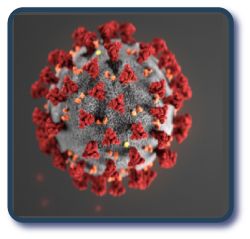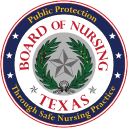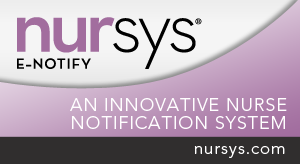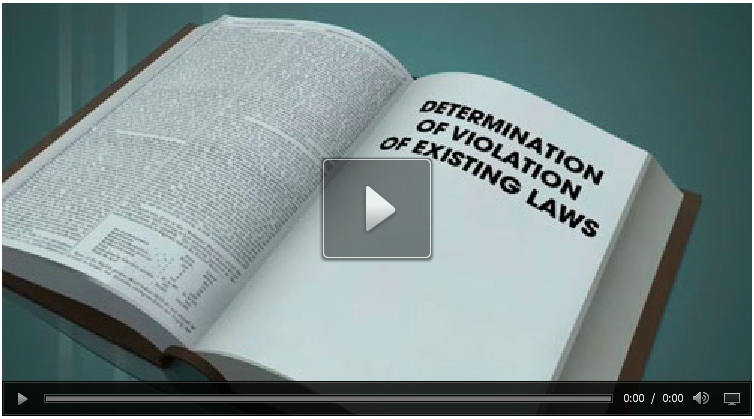
COVID-19 Disaster Licensing for Out-of-State Nurses
On March 14th, Governor Abbott directed the Texas Board of Nursing (TBON) to fast-track the temporary licensing of out-of-state nurses, and other license types to assist in Texas' response to COVID-19.
In accordance with Section 418.171 of Texas Government Code, any out-of-state nurse may practice in Texas for the purpose of rendering aid, provided the nurse holds a current license in good standing in their home state. Therefore, any out-of-state nurse with a license in good standing* is not required to hold a Texas license in order to practice nursing in a disaster relief effort operation setting. Additionally, Texas is a member state of the Nurse Licensure Compact. As such, any LVN or RN holding an active compact license already holds a privilege to practice in Texas.
APRNs are still required to have a delegating physician that meets the requirements of Texas Medical Board (TMB) Rule 172.21. Please note that TMB Rule 172.21(b)(1) requires that the physician hold TX licensure and have been practicing in Texas prior to the date on which the emergency was declared. APRNs are not required to have a written prescriptive authority agreement for practice in a disaster relief effort operation setting. However, we recommend that APRNs keep their own personal records of the physician(s) with whom they collaborate for disaster relief purposes should that information be required in the future for any reason.
Nurses who plan to practice telehealth during this disaster:
Telenursing involves nursing practice via any electronic
means such as telephone, satellite, or computer. Examples of telenursing
practice may include (but are not limited to) teaching, consulting, triaging,
advising, or providing direct services. All of these actions constitute the
practice of nursing, even when there is no face-to-face or physical contact
with a person or patient. If a job description requires a person to hold a valid
nursing license, then the job duties therein involve the practice of
nursing. This means a nurse must comply with the Texas
Nursing Practice Act and Board
Rules in the exercise of his/her practice of nursing. Board Rule 217.11,
Standards of Nursing Practice, is the primary rule applied to nursing practice
in any setting.
Telenursing may also involve practicing nursing across state lines. For
example:
- A nurse working in an emergency hotline center in Virginia may provide advice to clients in Texas;
- A nursing faculty professor from Arizona may teach nurses enrolled in an online graduate (Master's Degree) nursing education program in Texas; or
- An RN working for an insurance company in New York may assess ongoing home healthcare needs of a patient in Texas.
If a nurse from another state provides nursing services to a patient located in Texas, except as excluded in the Nursing Practice Act, Section 301.004, Application of Chapter, the nurse must hold a valid Texas nursing license or a valid nursing license with multistate privileges in another Compact state in order to practice nursing in the State of Texas and/or with Texas residents. If telehealth practice is performed pursuant to an emergency or disaster declaration, a nurse with a license in good standing issued by any state (compact or not) may practice in Texas. Those who do not have a license in good standing may pursue temporary application for authority to practice (see below).
As for other out-of-state nurses seeking to practice in Texas who do not hold a license in good standing to practice nursing, the Texas Board of Nursing will allow out-of-state licensed vocational nurses (LVN), registered nurses (RN), and advanced practice registered nurses (APRN) to apply for a Texas limited emergency license or hospital-to-hospital credentialing until the disaster declaration is lifted or expires.
Each employer planning to employ nurses practicing under this exception should notify the Texas Board of Nursing. Please include: nurse's name, home state, licensure type and number, and the employing facility name and location. This can be submitted after the nurse is employed.
Send notifications by email to: [email protected] OR Fax to: 512-305-7401
*Good standing means there is not current disciplinary action on your state nursing license(s).
The BON is not soliciting volunteers. Nurses wishing to volunteer may contact the following to inquire about volunteer needs:
1. Texas Department of State Health Services Texas Disaster Volunteer Registry at:
https://www.texasdisastervolunteerregistry.org/
2. The American Red Cross, http://www.redcross.org/ Phone: (866)526-8300
A nurse with current disciplinary action on his/her state nursing license who wishes to practice nursing in a disaster relief effort operation setting in Texas should contact the following staff member at the Texas Board of Nursing:
Mark Majek
The Texas Board of Nursing appreciates the commitment of nurses in Texas and beyond in responding to this challenging public health crisis. In addition to the temporary removal of barriers to practice in Texas, some additional resources include:
- Frequently Asked Questions (FAQ) related to Nursing Practice in Disaster Areas
- FAQ related to Mandatory Overtime
- FAQ related to Consecutive Shifts
- FAQ related to Workplace and Employment
COVID-19 related Updates and Guidance:
The Texas Department of State Health Services (DSHS) is working closely with the Centers for Disease Control and Prevention (CDC) in monitoring the new coronavirus disease 2019 (COVID-19) that is causing an outbreak of respiratory illness worldwide. For updates and links to guidance, please visit: https://www.dshs.texas.gov/coronavirus/
Visit https://www.dshs.texas.gov/coronavirus/#ifsick for
what to do if you're sick, testing information, symptoms, and prevention
tips to help DSHS share facts, not fear.
Hospitals, healthcare professionals, local public health, community leaders,
and others can find resources throughout this website to help them in their
response to COVID-19. This is a rapidly evolving situation and information will
be updated as it becomes available. Check back often for the latest details and
what Texans need to know about COVID-19.
updated 6/9/2020



